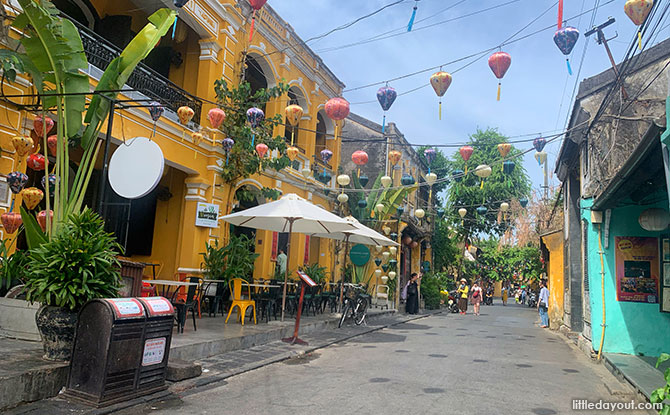-
Table of Contents
“Explore, Preserve, and Protect: Embrace Eco-Tourism for a Sustainable Future”
Eco-tourism refers to a form of travel that focuses on promoting sustainable practices and conservation efforts. It involves visiting natural areas, such as forests, mountains, or wildlife reserves, while minimizing the negative impact on the environment and supporting local communities. Eco-tourism aims to raise awareness about the importance of preserving biodiversity, protecting fragile ecosystems, and fostering cultural appreciation. By engaging in eco-friendly activities and supporting responsible tourism practices, travelers can contribute to the conservation of natural resources and promote sustainable development in the destinations they visit.
The Importance of Eco-Tourism in Preserving Natural Habitats
Eco-tourism, a form of travel that focuses on promoting sustainable practices and conservation efforts, has gained significant attention in recent years. This type of tourism not only allows travelers to explore and appreciate the beauty of natural habitats but also plays a crucial role in preserving these environments for future generations.
One of the primary reasons why eco-tourism is essential is its ability to raise awareness about the importance of conserving natural habitats. By immersing themselves in these environments, travelers gain a firsthand understanding of the delicate balance that exists between humans and nature. They witness the intricate web of life that depends on the preservation of these habitats, from the smallest insects to the largest predators. This experience fosters a sense of responsibility and encourages individuals to take action to protect these fragile ecosystems.
Moreover, eco-tourism provides economic incentives for local communities to engage in conservation efforts. Many natural habitats are located in developing countries where poverty is prevalent. By promoting eco-tourism, these communities can benefit from the influx of tourists who are willing to pay for sustainable and responsible travel experiences. This revenue can then be reinvested in conservation projects, such as habitat restoration, anti-poaching initiatives, and education programs. In this way, eco-tourism becomes a powerful tool for poverty alleviation and sustainable development.
In addition to its economic benefits, eco-tourism also helps to mitigate the negative impacts of traditional tourism on natural habitats. Traditional tourism often leads to environmental degradation, as large numbers of visitors can disrupt ecosystems, contribute to pollution, and cause habitat destruction. Eco-tourism, on the other hand, emphasizes low-impact practices that minimize these negative effects. Tour operators and accommodations that specialize in eco-tourism adhere to strict guidelines to ensure that their activities do not harm the environment. This includes limiting group sizes, using renewable energy sources, and promoting waste reduction and recycling. By adopting these sustainable practices, eco-tourism helps to preserve the integrity of natural habitats and minimize the ecological footprint of travelers.
Furthermore, eco-tourism fosters a sense of appreciation and respect for cultural diversity. Many natural habitats are home to indigenous communities who have lived in harmony with their surroundings for centuries. By engaging with these communities, travelers gain insights into their traditional knowledge and practices, which are often closely linked to the conservation of natural resources. This cultural exchange not only enriches the travel experience but also helps to preserve and promote indigenous cultures. By supporting eco-tourism, travelers contribute to the preservation of cultural heritage and the empowerment of local communities.
In conclusion, eco-tourism plays a vital role in preserving natural habitats and promoting sustainable travel practices. By raising awareness, providing economic incentives, mitigating negative impacts, and fostering cultural appreciation, eco-tourism contributes to the conservation of fragile ecosystems and the well-being of local communities. As travelers, we have the power to make a positive impact by choosing eco-friendly travel options and supporting initiatives that prioritize the protection of our planet’s natural wonders. Let us embrace eco-tourism as a means to explore, learn, and contribute to a more sustainable and environmentally conscious future.
How Eco-Tourism Can Support Local Communities and Economies
Eco-tourism, a form of travel that focuses on promoting sustainable practices and conservation efforts, has gained significant popularity in recent years. This type of tourism not only allows travelers to explore and appreciate the natural beauty of a destination but also supports local communities and economies. By engaging in eco-tourism, travelers can make a positive impact on the places they visit, ensuring that future generations can also enjoy these natural wonders.
One of the key ways in which eco-tourism supports local communities is through the creation of job opportunities. Many eco-tourism initiatives prioritize hiring local residents as guides, drivers, and staff members. This not only provides employment opportunities for the local population but also helps to empower them economically. By supporting local businesses and individuals, eco-tourism helps to alleviate poverty and improve the overall quality of life in these communities.
Furthermore, eco-tourism often encourages the preservation of traditional cultures and practices. Many destinations that attract eco-tourists are home to indigenous communities with unique cultural traditions. By engaging with these communities in a respectful and sustainable manner, travelers can help to preserve their cultural heritage. This can be done through activities such as visiting local markets, participating in traditional ceremonies, or learning about traditional crafts and skills. By supporting and respecting local cultures, eco-tourism helps to ensure the preservation of these valuable traditions for future generations.
In addition to supporting local communities, eco-tourism also has a positive impact on local economies. When travelers choose eco-friendly accommodations, dine at local restaurants, and purchase locally made products, they contribute directly to the local economy. This helps to stimulate economic growth and development in the region. Moreover, eco-tourism often promotes the establishment of small businesses that offer sustainable products and services. These businesses not only provide employment opportunities but also contribute to the overall economic diversification of the area.
Another way in which eco-tourism supports local economies is through the promotion of sustainable agriculture and farming practices. Many eco-tourism initiatives encourage travelers to visit organic farms, participate in farm-to-table experiences, or learn about sustainable farming methods. By engaging in these activities, travelers not only gain a deeper understanding of the local food culture but also support local farmers and promote sustainable agricultural practices. This, in turn, helps to strengthen the local food system and reduce the reliance on imported goods.
Overall, eco-tourism plays a crucial role in supporting local communities and economies. By prioritizing the hiring of local residents, preserving cultural traditions, and supporting local businesses, eco-tourism helps to empower communities and improve their economic well-being. Additionally, by promoting sustainable agriculture and farming practices, eco-tourism contributes to the overall sustainability and resilience of the local economy. By choosing eco-tourism, travelers can make a positive impact on the places they visit, ensuring that these destinations remain vibrant and thriving for years to come.
Top Eco-Friendly Destinations for Responsible Travelers
Eco-Tourism: Promoting Sustainable Travel and Conservation Efforts
In recent years, there has been a growing awareness of the impact that tourism can have on the environment. As a result, more and more travelers are seeking out eco-friendly destinations that prioritize sustainability and conservation efforts. These destinations not only offer breathtaking natural beauty but also provide opportunities for responsible travelers to contribute to the preservation of our planet. In this article, we will explore some of the top eco-friendly destinations for those who wish to travel responsibly.
One such destination is Costa Rica, a country known for its commitment to environmental conservation. With over 25% of its land protected as national parks and reserves, Costa Rica offers travelers a chance to explore lush rainforests, stunning beaches, and diverse wildlife. Visitors can participate in activities such as hiking, birdwatching, and even volunteering in conservation projects. The country’s eco-lodges and sustainable tourism initiatives ensure that visitors can enjoy their stay while minimizing their impact on the environment.
Another popular eco-friendly destination is Iceland, a country renowned for its pristine landscapes and geothermal wonders. Iceland’s commitment to renewable energy and sustainable practices has made it a top choice for responsible travelers. From exploring glaciers and waterfalls to soaking in natural hot springs, visitors can experience the country’s natural beauty while supporting its efforts to combat climate change. Additionally, Iceland’s strict regulations on tourism help to protect fragile ecosystems and ensure that future generations can enjoy the country’s wonders.
For those seeking a tropical paradise, the Maldives offers a unique eco-friendly experience. This archipelago is home to some of the world’s most stunning coral reefs and marine life. However, the Maldives is also highly vulnerable to the effects of climate change, such as rising sea levels and coral bleaching. To combat these threats, the country has implemented various conservation initiatives, including the establishment of marine protected areas and the promotion of sustainable tourism practices. Travelers can enjoy activities such as snorkeling, diving, and beach clean-ups, all while contributing to the preservation of this fragile ecosystem.
In South America, Ecuador stands out as a top eco-friendly destination. The country’s commitment to sustainable tourism is evident in its efforts to protect the Galapagos Islands, a UNESCO World Heritage site. Strict regulations and visitor quotas ensure that the delicate ecosystem of the islands remains preserved for future generations. Travelers can explore the islands’ unique wildlife, including giant tortoises and marine iguanas, while supporting conservation efforts through responsible tourism practices. Additionally, Ecuador’s Amazon rainforest offers opportunities for eco-tourists to learn about indigenous cultures and participate in conservation projects.
Lastly, New Zealand is a must-visit destination for responsible travelers. Known for its breathtaking landscapes, the country has made significant efforts to protect its natural heritage. With numerous national parks and protected areas, visitors can hike through pristine forests, kayak in crystal-clear lakes, and witness stunning fjords. New Zealand’s commitment to sustainable tourism is evident in its eco-lodges, organic farms, and conservation initiatives. Travelers can also learn about the country’s indigenous Maori culture and their deep connection to the land.
In conclusion, eco-tourism is a growing trend that promotes sustainable travel and conservation efforts. Responsible travelers can make a positive impact by choosing eco-friendly destinations that prioritize environmental preservation. Whether it’s exploring the rainforests of Costa Rica, witnessing the geothermal wonders of Iceland, or diving in the coral reefs of the Maldives, there are countless opportunities to experience the beauty of our planet while contributing to its protection. By supporting these destinations and practicing responsible tourism, we can ensure that future generations can enjoy the wonders of nature for years to come.In conclusion, eco-tourism plays a crucial role in promoting sustainable travel and conservation efforts. It offers a responsible and ethical way for individuals to explore natural environments while minimizing negative impacts on the environment and local communities. By supporting eco-tourism initiatives, travelers contribute to the preservation of biodiversity, protection of fragile ecosystems, and the economic development of local communities. Overall, eco-tourism serves as a powerful tool in fostering environmental awareness and conservation, ensuring a more sustainable future for both travelers and the planet.





